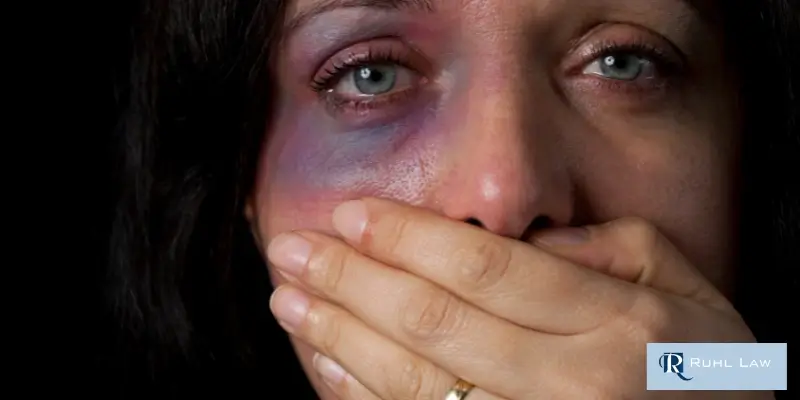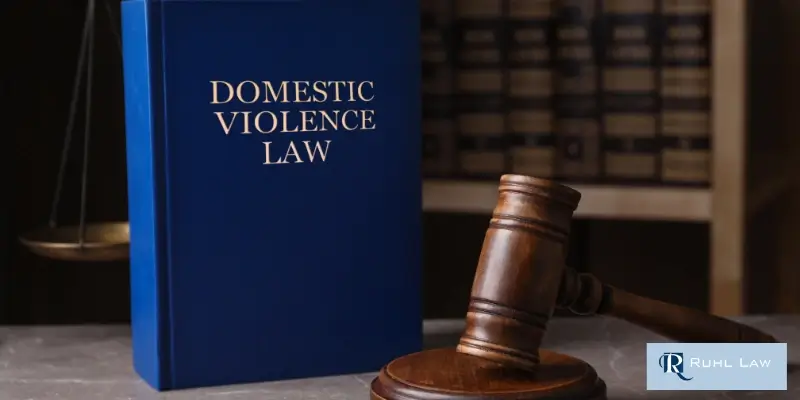How to Beat a Domestic Violence Charge in Florida

How to Beat a Domestic Violence Charge in Florida
Facing charges for domestic violence in Florida can lead to significant consequences that can leave a scar on your life forever, from loss of civil rights to mandatory imprisonment to social isolation. By understanding how to beat a domestic violence charge in Florida, individuals can leverage the right legal strategies to challenge any allegations, safeguard their reputation, and avoid potential convictions.
Domestic Violence in Florida:
In order to contextualize domestic violence defense strategies in this state, it’s essential to first understand the prevalence of domestic violence in Florida. In 2023 alone, 71,431 domestic violence offenses were reported, which is a rate of 314.9 per 100,000 people based on Florida’s population of 22,685,583. These statistics mirror broader crime trends across Florida’s urban and suburban communities.
In Florida, the average family size is 3.03, with 47% of Florida households being married-couple-family households. On the other hand, 28% of households are female-headed with no spouse present, and 17.4% are part of a male-headed household with no spouse present.
These figures are essential considering the legal definition of domestic violence under Florida law, which involves violence that has occurred between roommates, co-parents, spouses, and others who have lived together as a family. Many charges can arise from family dynamics statistically mirroring the situation in Florida.

What Counts as Domestic Violence in Florida?
Under Florida Statute §741.28, domestic violence charges can be brought forward for the following offenses: battery and aggravated battery, assault and aggravated assault, stalking and aggravated stalking, sexual assault and sexual battery, and false imprisonment or kidnapping. Any crime that results in the physical injury or death of a family or household member can constitute domestic violence.
For purposes of the law, family or household members can be defined as people who are related by blood or marriage, spouses, ex-spouses, people who live or have lived together as a family, and parents who share a child. Penalties for domestic violence convictions are extremely serious, especially if any physical injury was involved, and can include mandatory jail time, mandatory probation and intervention programs, and fines.
These penalties make it crucial to fight back against charges.
How to Beat a Domestic Violence Charge in Florida
Although each domestic violence case in Florida is different, there are some major criminal defense strategies that are commonly used:
- Self-defense or defense of others. If you used force against a family or household member because you genuinely believed that you were under the threat of harm or somebody else was, this could be used as a valid legal defense in court.
- False allegations. Unfortunately, it is possible for domestic violence charges to be based solely on false allegations, especially during contentious situations like divorce or custody battles. Your criminal defense lawyer may shed light on ulterior motives or inaccurate or inconsistent statements that just don’t add up. Similar challenges arise in other family-related charges where emotions run high and evidence may be questionable.
- Lack of evidence. In many domestic violence situations, there are no other witnesses present besides the alleged victim in this situation. If they’re not showing any visible injuries, a 911 call, or law enforcement report, or if there’s no eyewitness testimony, the prosecution may not be able to prove that you are guilty beyond a reasonable doubt.
- Stand your ground. Under Florida’s “Stand Your Ground” law, if you were lawfully located at the scene of the alleged crime and acting in self-defense, you may be able to get your case dismissed without it going to trial.
- Consent or mutual combat. Depending on the case, the incident could sometimes be a mutual physical fight, or the other party might have initiated the physical altercation. This criminal defense strategy may be able to lessen charges or get sentencing reduced.
What to Do if You’ve Been Charged
If you’ve been charged with a domestic violence crime, it is crucial to avoid the alleged victim at all costs. Even if you think you can resolve the situation by contacting them, doing so could violate the conditions of your bond or even lead to new charges. Instead, it’s crucial to immediately hire a trusted criminal defense attorney. They can help you navigate Florida’s complex and unforgiving domestic violence laws.
![How to Beat a Domestic Violence Charge in Florida [2025 Guide] How to Beat a Domestic Violence Charge in Florida [2025 Guide]](https://swfloridacriminallaw.com/wp-content/uploads/2025/02/beat-domestic-violence-charge-florida.webp)
FAQs About Domestic Violence Charges in Florida
What Should I Do First if I’m Arrested for Domestic Violence?
The first thing you should do after being arrested for domestic violence is contact a skilled and experienced criminal defense lawyer. Be sure not to make any statements to law enforcement or undergo interrogations without your attorney present. They can help you collect evidence, adhere to any court orders, and build up a robust criminal defense strategy.
Can a Domestic Violence Victim Drop the Charges?
No, it is not possible for a domestic violence victim in Florida to drop the charges. Instead, it is the state attorney’s office, not the alleged victim, that has the ultimate deciding power on whether they want to pursue or drop the charges. They will do this by analyzing the evidence available and making a final decision.
Will I Go to Jail if Convicted?
If you were convicted of domestic violence charges in Florida, you would likely go to jail if bodily harm was involved in the crime. Under Florida law, a minimum of 10 days in jail is required for any first-time offenders for crimes involving bodily harm, with the minimum mandatory sentence increasing with subsequent offenses.
Can a Domestic Violence Charge Be Expunged in Florida?
No, domestic violence charges cannot be expunged in Florida if you are ultimately found guilty. Charges that are dropped before trial or those with withheld adjudication could be eligible for expungement or sealing under very restricted circumstances. It’s important to work with an attorney who can help you understand your options for sealing or expungement. Florida’s record-clearing processes have specific eligibility requirements that vary by case type and jurisdiction.
What Is a Batterers’ Intervention Program (BIP)?
A Batterers’ Intervention Program (BIP) is a program mandated by the courts for individuals who have been convicted of domestic violence offenses, which focuses on behavioral change, accountability, and anger management. This program is mandatory under §741.281 and involves a minimum 29-week course. Your attorney can help you understand actions to take to ensure compliance with this program.
Defend Your Rights and Reputation With a Skilled Domestic Violence Defense Attorney
If you or a loved one is facing domestic violence charges in Florida, it is crucial to work with an experienced criminal defense attorney right away who can help you understand your rights and explore your legal options. A skilled lawyer from Ruhl Law, P.A., is determined to help you build a robust defense and avoid long-term damage. Contact us today to get started.
© 2026 Ruhl Law, P.A. • All Rights Reserved.


